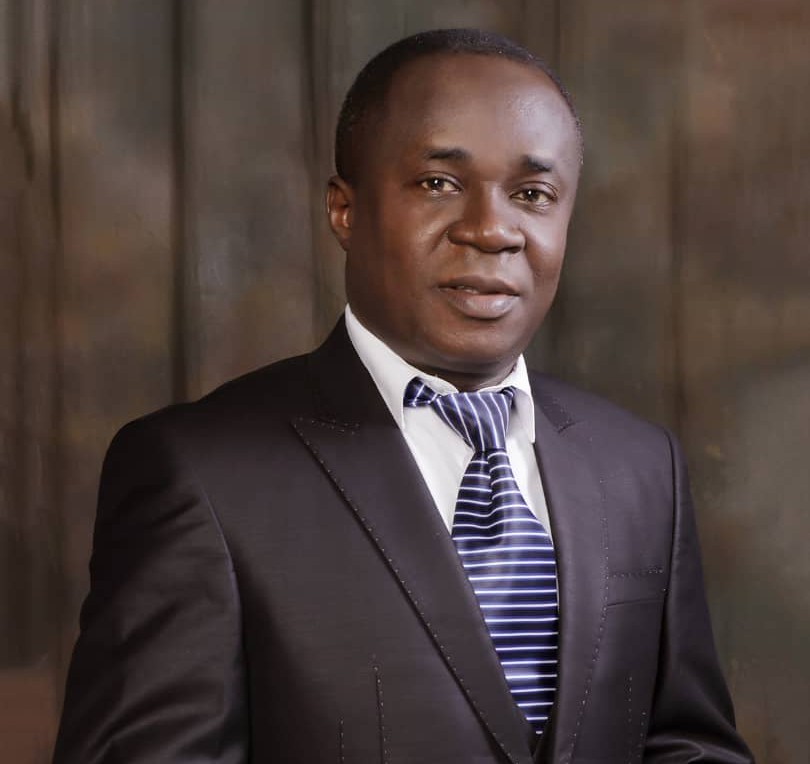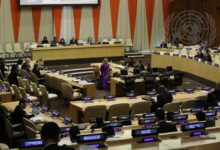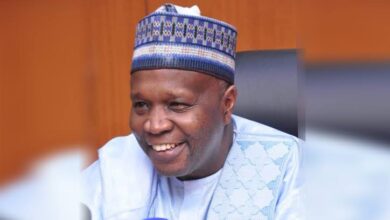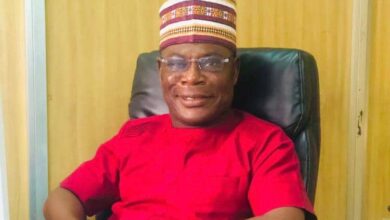OPINION: Crystal-Gazing The Nigerian Stock Market In 2022

Going by the relatively low year-to-date return of circa 6 percent in 2021, the performance of the Nigerian stock market, represented by the equities segment of the Nigerian Exchange, appears a far cry compared to mouth-watering market return of 2020. One continues to recall with nostalgia that despite the ravaging impact of COVID-19 on the Nigerian economy, the stock market surprised on the upside, outperforming global stock markets in 2020, according to Bloomberg, and posting over 50 percent year-to-date return. Has the low outturn in 2021 come as a surprise? Not exactly. In my article ahead of 2021 titled ‘Crystal-gazing the Nigerian Stock Market in 2021’, I had made the following prediction:
‘’the stock market will most likely pull back by the second half of 2021 having attained an unprecedented peak in 2020. The low yield environment in 2020 acted like a tide that lifted all boats and under such circumstances, there is the tendency that a number of stocks may have been mispriced or priced above their intrinsic values. If history is any guide, market correction is bound to happen especially in the last two quarters of 2021 regardless of any positive growth rate in GDP attained in 2021’’.
With the benefit of hindsight, this prediction actually hit the bull’s eye in view of the fact that the highest stock return in 2021 was in the month of January at 5.3% and that returns for the last quarter printed at 4.52% (October), 2.88% (November) and -1.12% (November) compared to 13.79%, 14.72% and 15% respectively during corresponding periods in 2020.
It goes without saying that the performance of the Nigerian stock market in 2021 cannot be divorced from the fragile economic performance. The country recorded some improvements in real GDP growth compared to the economic downturn of the previous year which was largely on account of COVID’19 pandemic. For example, GDP growth rate in the second and third quarters came in at 5.01% and 4.03% respectively powered mostly by the non-oil sector. Also worthy of mention is the fact that headline inflation began a downward trajectory in April 2021.
Regrettably, these positive macroeconomic developments did not make any significant impact on the stock market not least because the quarterly GDP growth rates had a lot to do with what is statistically known as the base effect in the computation of GDP given the deep economic recession experienced during the corresponding periods. Furthermore, although disinflation was sustained for 8 consecutive months in 2021, the double-digit inflation rate remained high to support any meaningful growth in the stock market. As a matter of fact, the 6.07% return in 2021 translates to negative real return when adjusted for inflation which came in at 15.40% in November 2021.
Other factors which presented challenges to real traction of the stock market in 2021 include the high exchange rates as well as rising yields in the fixed income market due in part to increase in government’s borrowing. It will be recalled that the remarkable performance of the stock market in 2020, despite the pandemic, was largely on account of the low yield environment made possible by the accommodative monetary policy stance of the Central Bank of Nigeria.
As the 2021 curtain falls, what looks clear from my crystal ball is that the performance of the market in 2022 will be shaped by the following factors:
CBNs Monetary Policy
In order to support economic recovery, the CBN has maintained what can be described as accommodative monetary policy stance since September 2020 when the MPR was reduced by 100 basis points to 11.5%. This stance will likely change in 2022 as policy becomes more hawkish induced by both endogenous and exogenous factors (i will come to these later). Tightening monetary policy through, for example, raising the MPR could lead to rising yields in the fixed income market and portfolio rebalancing away from equities to fixed income securities. For many businesses including listed companies, access to credit will continue to pose a challenge in a rising interest rate environment.
Persistent Forex challenge
For many businesses that depend on imported raw materials, difficulty in accessing forex is most likely to linger in view of the arrears of unmet forex demand which the CBN still grapples with. Against this backdrop, capacity utilization will likely be negatively impacted which in turn affects bottom lines and ability of listed companies to pay dividends.
Implementation of the FGs 2022 Budget
One of the endogenous factors I referred to earlier has to do with the growing fiscal imbalance. I can bet that the over N6 trillion deficit in the 2022 budget (which now has an aggregate expenditure of over N17 trillion) and government borrowing plans to finance the deficit will impact the stock market in a number of ways. It stands to reason that the more the government borrows to finance budget deficit; the more interest rates are driven up and as yields in the fixed income space go up, investors will naturally migrate from equities to government securities. More so, when government securities have the additional advantage of being risk-free. I foresee the yield environment in 2022 returning to the pre-COVID level and having a huge toll on the equities market.
As a corollary, the implementation of certain aspects of the 2021 Finance Act could impact liquidity of companies such as the reduction in the period for the payment of the Tertiary Education Tax from 60 days to 30 days. Faced with liquidity constraint, many public companies may not be in a position to maintain dividend payments at current levels or even pay at all.
Removal of fuel Subsidy
Another endogenous factor I could pick from my crystal ball is the planned removal of fuel subsidy following implementation of the PIA by mid-2022. The inevitable consequence will be higher headline inflation in the near term lingering till end of 2022. The tight monetary policy that will follow to rein in inflation will result in higher fixed income yields and make equities investment less attractive.
There’s equally the risk of rising cost of production arising from removal of fuel subsidy and increase in electricity tariffs. The situation will be made worse if fuel subsidy removal triggers social unrest which is inimical to both foreign and domestic investments. Already, if recent reports are anything to go by, organized Labour has announced a Nation-wide protest on January 27 against the plan.
Heightened Political Activities
For some reasons, penultimate election years in Nigeria are characterized by feverish preparations for general elections which tend to relegate the economy to the back seat. This will have adverse consequences for the economy and the stock market from the uncertainties and tensions often generated by activities of some desperate Politicians. Inflationary pressure and exchange rate challenge will likely manifest more in the 2nd half of 2022 as politics takes centre stage.
Intensity and Spread of Omicron Virus
On the global scene, the intensity/spread of the omicron COVID’19 variant represents an exogenous factor. So, how the federal government of Nigeria responds to it will equally influence stock market performance in 2022. Resort to Lockdowns and movement restrictions will prove counterproductive.
Interest Rate Normalization in Developed economies
The planned interest rate normalization in developed economies is another exogenous variable likely to impact the Nigerian economy including the stock market in 2022. First, bond yields will rise leading to capital flow reversals in frontier and emerging markets. So, Nigeria should expect further capital outflows as a consequence which will hurt the stock market. Also, it goes without saying that exit of foreign investors usually puts pressure on the forex market. Therefore, another likely implication is depletion of foreign reserves and a higher exchange rate of the naira providing further justification for the CBN to tighten monetary policy. As earlier noted, doing so will increase cost of borrowing and reduce access to credit by businesses. When this happens, banks are likely to reprise their assets which may worsen Non performing loans position in the Banking sector.
At another level, the rise in US interest rates and bond yields will make it more expensive for the government to service the huge public debt now in excess of N38 trillion especially the foreign debt with significant Eurobonds component. This development will worsen the fiscal imbalance, jeopardize the 2022 budget as well as crowd out development funds.
Having gone through this experience before, both the fiscal and monetary authorities should anticipate the fallout of interest rate normalization in developed economies and put in place measures to cushion the adverse impact on the Nigerian economy.
International crude oil price
On the flip side, International crude oil price is likely to stay above the 2022 budget reference price of $62 per barrel on the average. Crude oil output is also likely to shore up following implementation of the Petroleum Industry Act. The combined effect of these is that the oil sector performance is likely to improve in 2022 which should rub-off positively on oil companies listed on the Nigerian Exchange.
Overall, the seemingly intractable challenge of insecurity will continue to dampen sentiments in the nation’s stock market in the new year. In order to mitigate the risks in the horizon, as well as ensure effective response to these possible threats to the nation’s economy, there should be proper coordination between fiscal and monetary authorities. The government should begin in earnest to discuss compensation measures with organized Labour aimed at ameliorating the impact of fuel subsidy removal.
All said, to overcome the headwinds, investors in the Nigerian stock market will be well advised to follow the time-honoured cautious investment path of asset allocation, risk management and portfolio diversification.
Happy New Year
Uche Uwaleke is a Professor of Capital Market at the Nasarawa State University and President of the Association of Capital Market Academics of Nigeria






